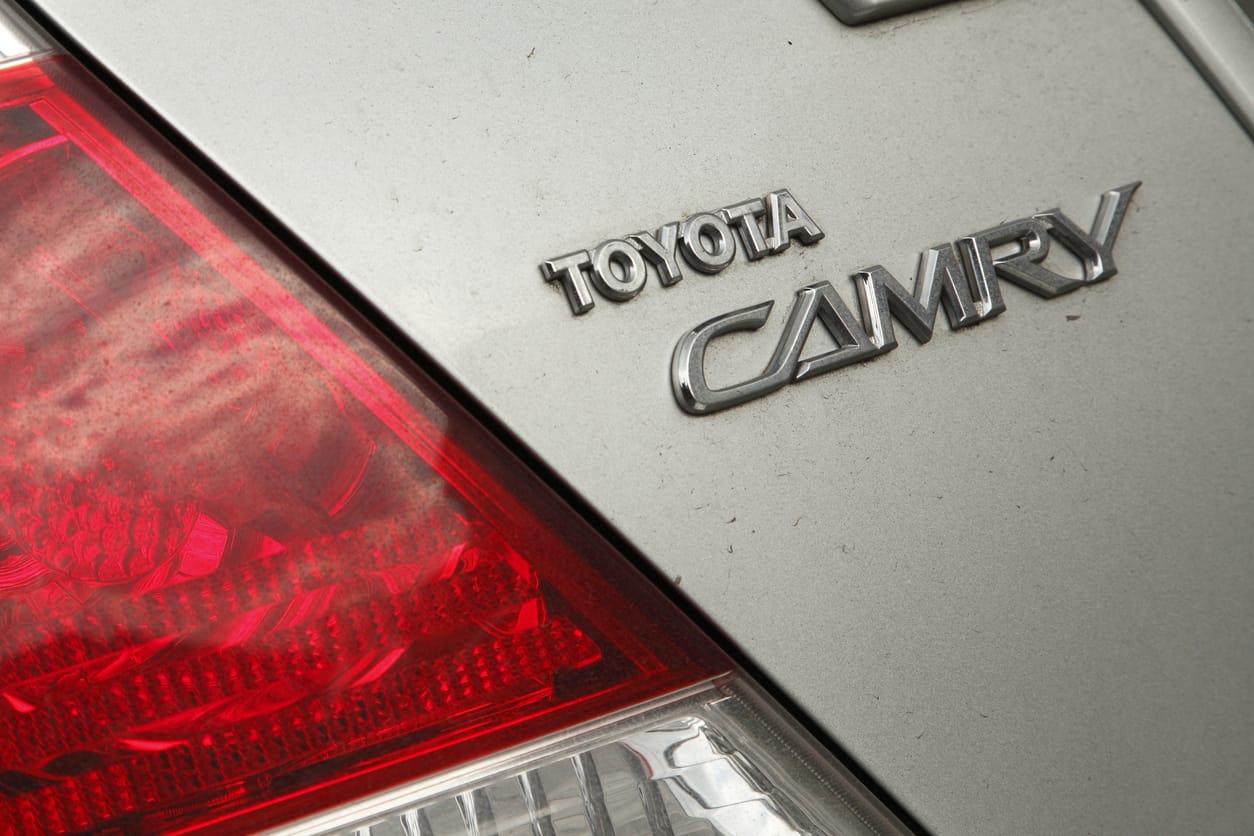Car shipping provides a convenient and reliable solution to transport your vehicle to your new destination, allowing you to focus on other aspects of your move. In this comprehensive guide, we will delve into the world of car shipping and explore its countless benefits. Whether you’re moving across the country or internationally, car shipping offers a convenient, cost-effective, and stress-free solution to ensure your vehicle arrives at your destination unscathed.
Understanding the advantages of car shipping and choosing the right company to prepare your vehicle for transportation, tracking its journey, and dealing with insurance and claims, we have you covered every step of the way.
As you embark on your long-distance move, we want to introduce you to Ship A Car, Inc., a trusted and reliable car shipping company that can seamlessly transport your vehicle while ensuring your peace of mind. With a team of experienced professionals, a commitment to exceptional customer service, and a vast network of carriers, Ship A Car is dedicated to providing top-notch car shipping services across the United States. Let them take the wheel and handle the logistics while you focus on settling into your new home.
So, whether you’re a seasoned car shipping veteran or embarking on this journey for the first time, this book is here to guide you. We aim to empower you with knowledge, dispel any concerns, and help you make informed decisions throughout the car shipping process.

Driving your car long distance can be a daunting and exhausting task. The thought of spending hours or even days behind the wheel, navigating unfamiliar roads, and enduring the physical strain can quickly diminish the excitement of your long-distance move. However, with car shipping, you can eliminate the hassle of driving and enjoy a more comfortable journey to your destination.
Car shipping provides a convenient alternative to driving, allowing you to save time and energy while avoiding the stress and fatigue associated with long hours on the road. Instead of enduring endless stretches of highway and battling traffic, you can sit back, relax, and focus on other aspects of your move.
When considering the costs associated with a long-distance move, driving your car may not always be the most cost-effective option. Expenses such as fuel, meals, accommodations, and potential vehicle maintenance can quickly add up, putting a strain on your budget. Car shipping offers a cost-effective solution by eliminating these additional expenses.
Car shipping companies often provide competitive pricing and tailored packages to suit your specific needs. By opting for car shipping, you can save money on fuel costs, reduce wear and tear on your vehicle, and even avoid the potential risk of accidents or traffic violations. It’s a smart financial decision that allows you to allocate your resources more efficiently during your move.
Time is a valuable commodity, especially during a long-distance move when there are numerous tasks to accomplish. Driving your car long distance can consume significant amounts of time and energy that could be better spent on other important aspects of your relocation. Car shipping offers a time-saving solution, allowing you to focus on more pressing matters.
With car shipping, you can bypass the need to dedicate days or even weeks to driving. Instead, you can utilize that time and energy to settle into your new home, organize your belongings, or attend to personal matters. By entrusting your vehicle to a reputable car shipping company, you can streamline your move and ensure a smoother transition.
Your vehicle is a valuable asset, and ensuring its safety during transportation is of utmost importance. Long-distance drives expose your vehicle to potential hazards such as road accidents, harsh weather conditions, and wear and tear from extended use. Car shipping provides a secure and reliable means of transportation that minimizes these risks.
Professional car shipping companies employ experienced drivers and utilize specialized equipment to safeguard your vehicle throughout its journey. Whether you choose open transport or enclosed transport, your vehicle will be protected from road debris, adverse weather, and other external factors that could compromise its condition. Additionally, reputable car shipping companies offer insurance coverage to provide further peace of mind.
One of the key advantages of car shipping is the accessibility and convenience it offers. Reputable car shipping companies have extensive networks of carriers, ensuring that you can transport your vehicle to and from virtually any location. This accessibility eliminates the need for extensive detours or driving routes that may not align with your preferred itinerary.
Car shipping services also provide convenient options such as door-to-door delivery, where your vehicle is picked up from your current location and delivered directly to your destination. This saves you the hassle of arranging transportation to and from terminals or depots. With the flexibility and convenience of car shipping, you can enjoy a smoother and more streamlined move.
Car shipping presents numerous benefits that make long-distance moves easier and more efficient. From eliminating the hassle of driving and providing cost-effective solutions to saving time and ensuring vehicle safety.

When it comes to entrusting your vehicle to a car shipping company, thorough research and comparison are crucial. With numerous options available in the market, taking the time to evaluate different companies will help you make an informed decision and ensure a smooth car shipping experience.
Start by researching reputable car shipping companies online. Visit their websites, explore their services, and take note of their years of experience in the industry. Look for companies with a track record of reliability and customer satisfaction.
Make a list of potential car shipping companies and compare their offerings. Consider factors such as shipping routes, transportation methods, customer support, and additional services they provide. Look for companies that align with your specific needs and preferences.
Customer reviews and testimonials offer valuable insights into the quality of service provided by a car shipping company. Reading about the experiences of past customers can give you an idea of what to expect and help you gauge the company’s professionalism and reliability.
Search for independent review platforms, industry-specific forums, and social media channels where customers share their experiences. Pay attention to both positive and negative reviews, considering the overall sentiment and any recurring themes. This will help you form a well-rounded understanding of each company’s reputation.
When choosing a car shipping company, it is essential to verify their licensing, insurance coverage, and certifications. These credentials ensure that the company complies with industry regulations and possesses the necessary qualifications to transport your vehicle safely.
Check if the car shipping company holds the appropriate licenses and permits required by the Department of Transportation or relevant governing bodies. Additionally, inquire about their insurance coverage and the extent of protection provided for your vehicle during transit. A reputable car shipping company will be transparent about its insurance policies and willingly provide you with the necessary information.
Certifications from reputable organizations such as the Federal Motor Carrier Safety Administration (FMCSA) or the Better Business Bureau (BBB) can also serve as indicators of a company’s commitment to professionalism and quality service.
Car shipping companies offer various types of services to accommodate different customer needs. Understanding the different options available will help you choose the most suitable service for your specific requirements.
The two primary types of car shipping services are open transport and enclosed transport. Open transport involves shipping vehicles on an open carrier, exposing them to the elements but providing a cost-effective solution. Enclosed transport, on the other hand, offers added protection by shipping vehicles in an enclosed trailer, shielding them from potential external damage.
Consider the value and condition of your vehicle when selecting a shipping method. If your vehicle is particularly valuable, classic, or requires extra protection, enclosed transport may be the better choice. For everyday vehicles, open transport can offer a reliable and cost-effective solution.
Before finalizing your decision, it’s important to obtain accurate quotes and estimates from car shipping companies. This will allow you to compare prices and ensure that the chosen company aligns with your budget.
Contact the car shipping companies on your shortlist and provide them with accurate information about your vehicle, desired shipping dates, and locations. Reputable companies will provide you with detailed quotes, outlining all costs involved, such as transportation fees, insurance coverage, and any additional services requested.
Beware of companies that provide significantly lower quotes than others, as this may indicate subpar service or hidden fees. It’s important to strike a balance between cost and quality when selecting a car shipping company.

When it comes to shipping your vehicle, choosing the right shipping method is crucial. The method you select can significantly impact the safety, cost, and convenience of transporting your vehicle. In this chapter, we will delve into the importance of selecting the right vehicle shipping method and explore various factors to consider when making your decision.
Before diving into the selection process, it’s essential to have a clear understanding of the different vehicle shipping methods available. Familiarize yourself with the two primary methods:
a. Open Transport: Open transport involves shipping your vehicle on an open carrier, exposing it to the elements and potential road debris. This method is commonly used for everyday vehicles and offers a cost-effective solution.
b. Enclosed Transport: Enclosed transport provides a higher level of protection by transporting your vehicle in an enclosed trailer. This method is ideal for valuable, luxury, or classic vehicles that require added security and protection from external elements.
Consider the following:
a. Vehicle Value: The value of your vehicle plays a significant role in determining the appropriate shipping method. Higher-value vehicles often benefit from the added protection of enclosed transport.
b. Weather Conditions: If you are shipping your vehicle through an area known for extreme weather conditions, such as heavy snow or hailstorms, opting for enclosed transport can provide an extra layer of safeguarding against potential damage.
c. Distance of Transport: The distance your vehicle needs to travel can also impact your choice of shipping method. For shorter distances, open transport may be a suitable and cost-effective option. However, for long-distance moves, where your vehicle will spend more time on the road, enclosed transport can provide added peace of mind.
To make an informed decision, it’s crucial to compare open transport and enclosed transport directly. Each method has its advantages and considerations:
a. Open Transport:
- Cost-effective option
- Suitable for standard vehicles
- Potential exposure to weather and road debris
b. Enclosed Transport:
- Enhanced protection and security
- Ideal for luxury, classic, or high-value vehicles
- Higher cost compared to open transport
Another aspect to consider is whether you prefer terminal-to-terminal or door-to-door shipping:
1. Terminal-to-Terminal: With this option, you drop off and pick up your vehicle at designated terminals. It may be more suitable if you prefer direct involvement and are willing to coordinate logistics.
2. Door-to-Door Shipping: This convenient option involves the car shipping company picking up and delivering your vehicle directly to your specified locations, saving you time and effort.
To select the optimal shipping method for your needs, carefully evaluate your vehicle’s value, the weather conditions along the shipping route, the distance of transport, and your preference for convenience and involvement. Take the time to discuss your requirements and concerns with reputable car shipping companies who can provide expert advice tailored to your situation.

When it comes to car shipping, proper preparation of your vehicle is essential to ensure a smooth and secure transportation process. Taking the necessary steps to prepare your vehicle will help protect it during transit and give you peace of mind throughout the journey.
Before shipping your vehicle, it’s important to give it a thorough cleaning, both inside and out. This allows for a clear inspection of its current condition and ensures that any existing damage is documented. Take detailed photographs of your vehicle from various angles, focusing on any pre-existing scratches, dents, or other noticeable marks.
Documenting your vehicle’s condition will serve as evidence in case of any disputes regarding its condition upon arrival. It is also advisable to make a written note of any existing damage and share it with the car shipping company.
When preparing your vehicle for shipping, it’s crucial to remove all personal belongings and accessories. Car shipping companies typically have restrictions on transporting personal items due to safety regulations and insurance coverage limitations. Additionally, removing personal belongings reduces the risk of theft or damage during transit.
Take the time to clean out your vehicle’s interior and remove any loose items. Check the trunk, compartments, and glove box to ensure that nothing is left behind. Remember to remove any removable accessories, such as bike racks or spoilers, to prevent potential damage during transportation.
Checking and maintaining proper fluid levels is an important step in preparing your vehicle for shipping. Ensure that your vehicle has adequate levels of essential fluids such as engine oil, coolant, and brake fluid. This helps safeguard against potential issues that may arise during transportation.
If necessary, consult your vehicle’s owner’s manual or seek professional assistance to check and top up the fluid levels. By doing so, you contribute to the overall health of your vehicle and minimize the chances of any fluid-related complications during transit.
Before shipping your vehicle, it’s important to secure any loose parts or accessories that could become damaged or cause damage during transit. Make sure that all external components, such as antennas, spoilers, or mirrors, are properly secured or removed. This prevents them from getting dislodged or causing harm to your vehicle or others.
Consider protecting vulnerable areas of your vehicle, such as the front grille or headlights, with protective coverings or tape. This can help safeguard against potential scratches or debris damage that may occur during transportation. Taking these precautionary measures demonstrates your commitment to maintaining your vehicle’s condition.

Familiarizing yourself with the various steps involved will help you navigate the process with confidence and ensure the safe transportation of your vehicle.
The car shipping process begins with an initial consultation with the car shipping company. During this phase, you will discuss your specific requirements, such as the pickup and delivery locations, desired timeline, and any additional services you may need. The company’s representatives will provide you with detailed information about their services, pricing, and policies.
Once you have gathered all the necessary information and made an informed decision, you can proceed with booking the car shipping service. The company will guide you through the booking process, including providing you with the necessary documentation and confirming the details of your shipment.
Before your vehicle is loaded onto the carrier, it will undergo a thorough inspection and a condition report will be prepared. The car shipping company will carefully assess the condition of your vehicle, noting any pre-existing damage, scratches, or dents. This report is crucial as it serves as a baseline for comparison upon delivery.
You must be present during the inspection process to ensure all existing damages are properly documented. Take the time to review the condition report and verify its accuracy. If you notice any discrepancies, make sure to bring them to the attention of the company’s representative and have them documented appropriately.
One important decision you’ll need to make during the car shipping process is whether to opt for open or enclosed transport. Open transport involves shipping your vehicle on an open carrier, while enclosed transport provides additional protection by shipping your vehicle in an enclosed trailer.
Open transport is the most common and cost-effective option, suitable for everyday vehicles and short-distance moves.
Enclosed transport, on the other hand, is recommended for high-value or classic vehicles, as it offers added protection against weather elements and road debris.
Consider the value and condition of your vehicle, as well as your budget and personal preferences, when deciding between open and enclosed transport. The car shipping company can provide guidance and help you make the right choice based on your specific needs.
Once you have booked the car shipping service, the car shipping company will work with you to schedule the pickup and delivery of your vehicle. They will coordinate with their network of carriers to ensure a smooth and timely process.
During this phase, it’s important to provide accurate and detailed information about the pickup and delivery locations, including any potential challenges such as restricted access or time constraints. Clear communication with the car shipping company will help them plan the logistics effectively and ensure a seamless pickup and delivery process.
Throughout the car shipping process, reputable car shipping companies provide tracking services and maintain open lines of communication. They will provide you with updates on the status of your shipment, including estimated pickup and delivery times.
Take advantage of the tracking services provided by the car shipping company to stay informed about the progress of your shipment. This allows you to have a clear idea of when your vehicle will be picked up and delivered, giving you peace of mind.
Additionally, maintain regular communication with the car shipping company’s representatives. If you have any questions, concerns, or changes to your plans, reaching out to them will ensure that everything is properly addressed.
Understanding the car shipping process, from the initial consultation and booking to the tracking and communication, empowers you to make informed decisions and ensures a smooth and stress-free experience

One of the critical moments in the car shipping process is the vehicle inspection at the time of delivery. This step allows you to thoroughly examine your vehicle and ensure its condition matches the initial inspection report. In this chapter, we will explore the importance of inspecting your vehicle upon delivery, as well as how to resolve any damage issues that may arise and receive appropriate compensation.
Once your vehicle arrives at its destination, take the time to conduct a thorough inspection. Carefully examine the exterior, interior, and mechanical components of your vehicle to identify any new damages or discrepancies that may have occurred during transportation.
Referencing the initial inspection report you received at the time of pickup, compare the condition of your vehicle to its documented state. Pay close attention to any scratches, dents, or other damages that were not present during the initial inspection. It is essential to be meticulous during this process to ensure all damages are properly noted.
If you discover any new damages or discrepancies during the inspection, it is crucial to document them promptly. Take clear photographs or videos of the damage, making sure to capture multiple angles and close-ups. These visual records serve as valuable evidence when filing a claim or seeking compensation.
Furthermore, notify the car shipping company immediately about the damages you have identified. Report the issues in detail, providing the necessary documentation, and explain the discrepancies between the initial inspection report and the current condition of your vehicle.
Once you have reported the damages, the car shipping company will initiate the process of resolving the issues. They will investigate the matter and work towards finding a satisfactory resolution. Depending on the extent of the damages and the company’s policies, there are several possible outcomes:
a. Repair: In cases where the damages are minor, the car shipping company may arrange for the necessary repairs. They will coordinate with reputable repair shops to ensure the damages are addressed promptly and professionally.
b. Compensation: If the damages are more significant or cannot be repaired satisfactorily, the car shipping company may offer financial compensation for the loss. Compensation typically covers the cost of repairs or the diminished value of the vehicle due to the damages incurred during shipping.
c. Insurance Claims: Car shipping companies are often insured to protect against unforeseen events and damages. If the damages are covered under their insurance policy, the company will assist you in filing an insurance claim to receive the necessary compensation.
It is essential to work closely with the car shipping company and follow their established procedures when seeking compensation for damages. Provide them with all the required documentation, including the initial inspection report, photographs or videos of the damages, and any additional evidence that supports your claim.
The car shipping company will review your claim and assess its validity. They may request further information or conduct their investigation to determine the extent of liability. Once the claim is approved, the car shipping company will arrange for the agreed-upon compensation to be provided to you.
Keep in mind that the process of resolving damage issues and receiving compensation may vary depending on the specific policies and procedures of the car shipping company. It is crucial to maintain open and transparent communication throughout the process to ensure a fair and satisfactory resolution.

Having the right knowledge and following best practices can make a significant difference in ensuring a smooth and successful experience. Let’s explore essential tips and best practices to help you plan ahead, understand shipping timeframes and delays, take precautions for specialty vehicles, and review shipping contracts effectively.
Proper planning is crucial when it comes to car shipping. Start by researching and selecting a reputable car shipping company well in advance of your desired shipping date. This allows you to gather information, compare services and pricing, and make an informed decision.
Consider the logistics of your car shipping needs. Determine the pickup and delivery locations, preferred dates, and any specific requirements you may have. By planning, you can secure a spot with the car shipping company of your choice and have peace of mind knowing your transportation needs are taken care of.
It’s important to have a realistic understanding of shipping timeframes and potential delays. Keep in mind that car shipping involves coordinating multiple factors, such as carrier availability, route planning, and weather conditions. Delays can occur due to unforeseen circumstances, including traffic, mechanical issues, or inclement weather.
Communicate with the car shipping company to obtain estimated transit times for your specific route. While these estimates are usually accurate, it’s essential to account for potential delays. By understanding and acknowledging the possibility of delays, you can plan accordingly and manage your expectations throughout the shipping process.
If you own a specialty vehicle, such as a classic car, luxury vehicle, or modified vehicle, taking extra precautions is crucial to ensure its safe transportation. Specialty vehicles often require special handling, additional security measures, or specific loading and unloading procedures.
Before shipping your specialty vehicle, communicate its unique requirements to the car shipping company. Ensure they have experience handling and transporting similar vehicles. Ask about any special accommodations or precautions they can take to protect your vehicle during transit. Taking these additional steps will provide you with peace of mind knowing that your prized possession is in capable hands.
It’s essential to carefully review and understand the shipping contracts provided by the car shipping company. The contract outlines the terms and conditions of the shipping service and serves as a legally binding agreement between you and the company.
Read the contract thoroughly, paying attention to details such as liability coverage, insurance, cancellation policies, and dispute resolution procedures. If there are any clauses or terms that you find unclear or concerning, seek clarification from the car shipping company before signing the contract. Understanding your rights and obligations as outlined in the contract will help you navigate the shipping process with confidence.
Remember, the shipping contract serves as a vital tool in protecting your interests and establishing a clear understanding between you and the car shipping company. By reviewing and comprehending the contract, you can ensure a transparent and satisfactory car shipping experience.

1. Federal Motor Carrier Safety Administration (FMCSA) Regulations: The FMCSA sets forth regulations and guidelines for interstate car transportation in the United States. This sub-topic explores the key FMCSA regulations that car shipping companies must adhere to, such as licensing requirements, insurance coverage, safety standards, and driver qualifications.
2. State-Specific Car Shipping Regulations: In addition to federal regulations, individual states may have specific regulations governing car shipping. This sub-topic discusses the importance of understanding state-specific requirements, including licensing, permits, and any additional regulations that may apply.
3. International Shipping Regulations and Compliance: Shipping a car internationally involves navigating a different set of regulations and compliance requirements. This sub-topic provides an overview of the international shipping regulations that apply, including import/export requirements, customs procedures, documentation, and compliance with the laws of the destination country.
4. Understanding Liability and Legal Rights: Car shipping involves entrusting your vehicle to a shipping company, and it’s essential to understand the liability and legal rights associated with this process. This sub-topic explores the concept of liability in car shipping, including who is responsible for any damage or loss that may occur during transit, and the legal rights that protect both the shipper and the shipping company.
5. Dealing with Disputes and Complaints: Despite taking necessary precautions, disputes and complaints may still arise during the car shipping process. This sub-topic guides how to handle disputes and complaints effectively, including communication with the shipping company, documenting damages, and understanding the available recourse options.
Considerations for International Car Shipping
To ship your vehicle internationally, there are additional considerations that must be taken into account. International car shipping involves navigating complex regulations, preparing necessary documentation, handling customs procedures, and coordinating with destination customs and delivery. In this chapter, we will explore these crucial aspects to ensure a smooth and successful international car shipping experience.
International car shipping is subject to various regulations and requirements imposed by different countries. It is essential to have a clear understanding of these regulations to comply with them and avoid any unnecessary delays or complications. Research the specific regulations of the destination country regarding vehicle imports, emissions standards, safety requirements, and any restrictions on certain vehicle types or modifications. Being well-informed about the regulations will help you plan and prepare accordingly.
Shipping a vehicle internationally involves a substantial amount of documentation. It is crucial to gather and prepare all the necessary paperwork in advance to ensure a smooth shipping process. This may include:
- Vehicle title and registration documents
- Bill of sale or proof of ownership
- Valid identification documents
- Import/export permits or licenses
- Insurance documents
- Power of attorney (if using a shipping agent)
- Any additional documents required by the destination country
Thoroughly review the documentation requirements of both the origin and destination countries to ensure compliance and avoid any issues during customs clearance.
Customs procedures and import duties are an integral part of international car shipping. Each country has its own customs regulations and import duties that must be followed. It is crucial to be aware of these requirements and factor in any potential costs associated with customs clearance.
Consult with a reputable international car shipping company or a customs broker who can guide you through the customs procedures and assist in determining the applicable import duties. They can help ensure that you have the necessary paperwork, provide guidance on declaring the vehicle’s value accurately, and navigate any specific customs requirements.
Coordinating with destination customs and delivery is essential to ensure a smooth and efficient process once your vehicle arrives at the destination country. Provide all the required documentation to the customs authorities promptly and accurately to facilitate the customs clearance process. Stay in communication with your shipping agent or car shipping company to stay updated on the progress of customs clearance and delivery arrangements.
Coordinate with the destination customs and delivery agents to arrange a convenient time and place for vehicle inspection, release, and delivery. Ensure that you have all the necessary documentation readily available for customs officials during this process.

When deciding between driving your car and opting for car shipping, compare the costs associated with both options. Consider factors such as fuel expenses, accommodations, meals, and wear and tear on your vehicle.
Car shipping can potentially save you money on fuel costs, accommodations during long drives, and wear and tear on your vehicle. Calculate these potential savings to determine the cost-effectiveness of car shipping.
Don’t forget to consider the value of your time and energy when deciding between driving and car shipping. Car shipping allows you to focus on other aspects of your move, making it a valuable investment.
Car shipping provides a convenient and efficient solution for long-distance moves, making the relocation process easier for you and your family. By opting for car shipping, you can avoid the stress and fatigue of long drives, preserve the condition of your vehicle, and save on expenses associated with driving.
For hassle-free car shipping, Ship A Car, Inc. is your go-to solution. Our comprehensive guide has provided you with the knowledge and insights necessary to ensure a stress-free transportation experience. From finding the right service to understanding the process, you now have the tools to make informed decisions. Trust us with your vehicle, and we will deliver not only your car but also peace of mind. Contact SAC today and let us take care of your car shipping needs.
A: Car shipping services are commonly used for long-distance moves, but they can also be utilized for shorter distances if needed. It ultimately depends on your specific circumstances and preferences.
A: Several factors influence the cost of car shipping, including the distance of the move, the type of vehicle, the chosen shipping method, and the current market conditions.
A: Reputable car shipping companies typically provide insurance coverage for your vehicle while it is in transit. It’s essential to understand the coverage limits and any additional insurance options available.
A: It’s advisable to book a car shipping service as early as possible, preferably a few weeks before your desired pick-up date. This allows sufficient time to research, compare quotes, and make necessary preparations.
A: In the rare event that your car arrives damaged, immediately document the condition and notify the car shipping company. They will guide you through the claims process and work towards a resolution.
A: Most car shipping companies do not allow personal belongings to be transported inside the vehicle due to safety and liability reasons. It’s essential to remove all personal items before shipping your car.
A: Yes, car shipping is a reliable and commonly used method for transporting vehicles. By selecting a reputable car shipping company and following proper procedures, you can ensure a secure and successful delivery.
A: Many car shipping companies offer tracking services that allow you to monitor the progress of your vehicle. This feature provides peace of mind and keeps you informed throughout the shipping process.




